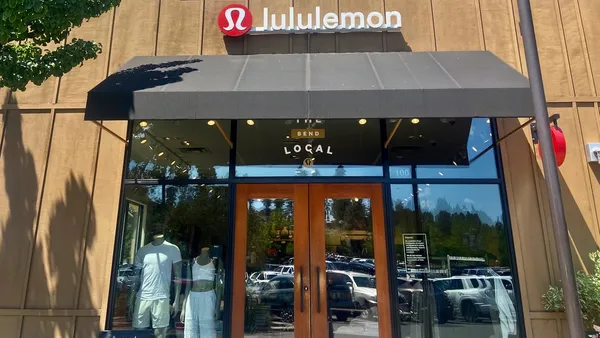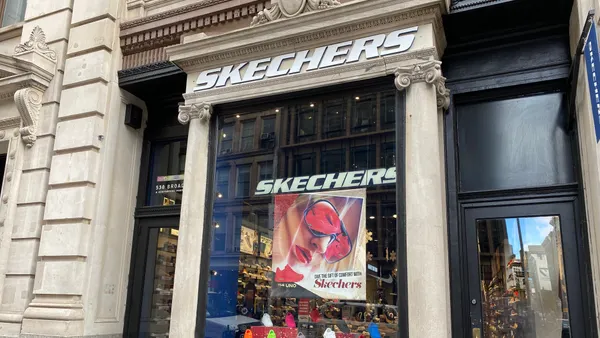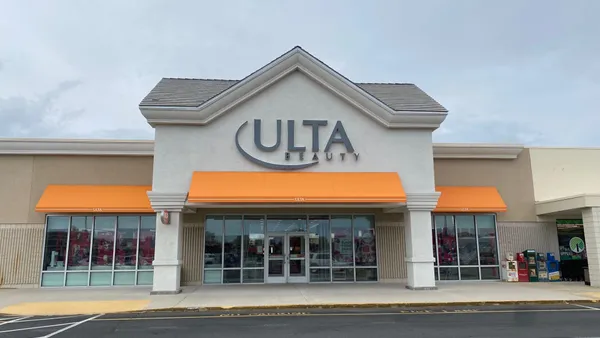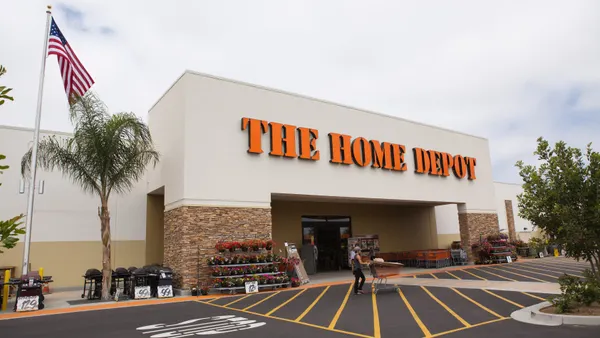Dive Brief:
- Party City plans to issue $725 million in new secured bonds due 2026 that it would use to pay off a term loan facility that matures next year, the company said in a press release.
- The offering will be made privately to institutional buyers, according to the company. Along with paying down its term loan, the company would also use proceeds to repurchase other debt.
- S&P Global Ratings upgraded Party City to CCC+ from CCC on the news of the bond offering, according to an emailed release. Analysts with the ratings agency said the transaction would address Party City's upcoming loan maturity but still leaves the company highly leveraged.
Dive Insight:
The bond market, propped up for now by the Federal Reserve, has been a major salve for struggling retailers in a position to tap it. Macy's, L Brands, Nordstrom and others turned it last year as a way to shore up liquidity during the uncertainty created by the COVID-19 crisis.
To Party City, the bond offering puts off for another few years reckoning with its debt load, a legacy of past private equity buyouts and which became a potentially dangerous burden with its sales on the decline.
For the fourth quarter, Party City now expects total revenue between $645 million and $650 million, a potential decline of 11.8% from Q4 2019, when sales also came up short for Party City. Management expects brand comparable sales in Q4 to be down by mid-single digits. At the same time, Party City managed to significantly shrink its operating losses, from $227.1 million in 2019 to up to $44 million in Q4 2020.
Telsey Advisory Group analysts led by Joseph Feldman noted that the results fell short of company guidance and showed "Party City may continue to see volatility in the near term, given COVID-19 flareups, as consumers prioritize health and safety and avoid social gatherings," according to an emailed research note.
Volatility and sales shortfalls could have spiraled into a major near-term crisis for Party City, but its bond sale would buy it a few years' time to try to execute a turnaround. Still, the party goods seller will be working against its debt load as it does so, as it has for the past two years of steep struggles.
S&P analysts Cameron Bybee and Helena Song said that Party City remains "very highly leveraged" and would "need to significantly improve its sales and profitability before we would view its capital structure as sustainable." The analysts added that Party City's disappointing Q4 sales show that "consumers remain wary of hosting parties and other get-togethers given the concerns around transmitting the coronavirus."
It goes without saying that is a major problem for a retailer dedicated exclusively to party products. But Party City's problems are deeper than the pandemic. Its abysmal 2019 Q4 was in part the result of market shifts in the Halloween costume market and other trends that caught Party City unready.
The retailer and wholesaler is trying to rebuild its sales with a growth strategy pinned on improving in-store shopping with simplified formats, doubling down on balloons, price reductions, better digital marketing and customer service, building out a strong multi-channel platform and boosting its wholesale business.














